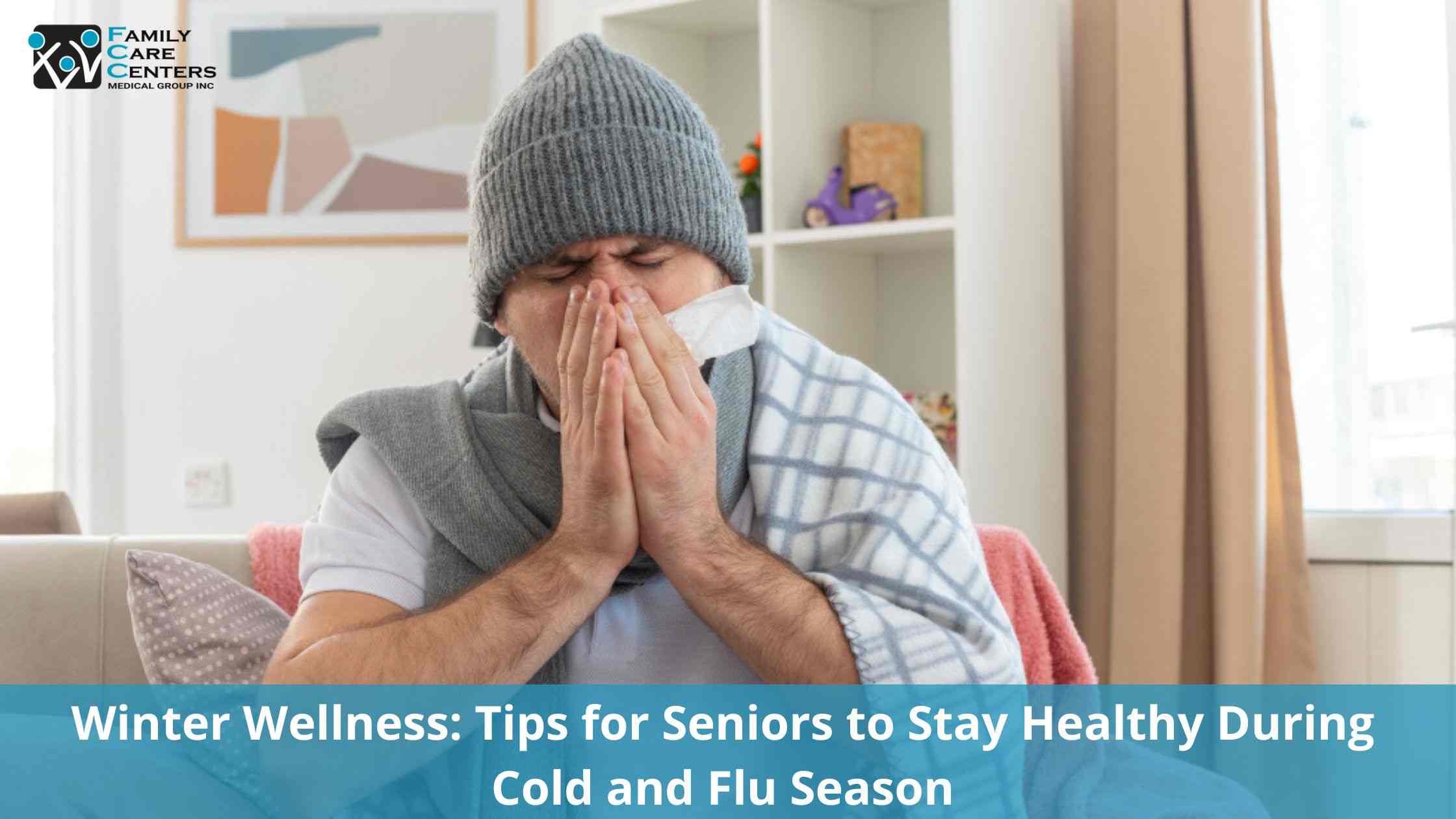

Fountain Valley Urgent Care Permanently Closed. We’re Here to Care for You at Our Other Locations.

The cold and flu season can hit hard, particularly for seniors and older people with chronic health conditions. Reports say that people above 65 account for almost 50-70% of flu-related hospitalizations and nearly 85% of flu-related deaths.
People in this age group often have suboptimal immune systems. As a result, they are at greater risk of complications from influenza, like bronchitis, pneumonia, and other lung conditions.
Keeping up-to-date with vaccinations, making positive lifestyle changes, and improving personal hygiene can reduce the risks of various illnesses, particularly the flu and common cold during the winter months.
In the US, December to February are the peak respiratory infection months: millions suffer from the common cold and influenza.
Though both virus types are highly contagious, their infections are caused by different viruses. Influenza viruses are mainly responsible for the flu, whereas the common cold can be caused by a number of lesser viruses, including parainfluenza, rhinovirus, and even seasonal coronaviruses. When compared to the flu, a common cold is mild: stuffy and runny noses are common symptoms. People with the influenza flu, on the other hand, have fever, aches, cough, fatigue, and weakness. Colds generally don't lead to complications like pneumonia, bronchitis, or other respiratory infections that require hospitalization. However, the flu can lead to all of these.
People over age 65 are more vulnerable to flu because of reduced immune system function commonly associated with age. Older people are also more likely to have other chronic disorders like diabetes, asthma, stroke, kidney ailments, COPD, etc, which can lead to further complications.
Also, many people don't stay up-to-date with vaccinations against the flu.
Along with older people, caregivers are also at a high risk of getting sick during the cold and flu season. Here are some practical tips for everyone to stay healthy during the winter months:
One of the most effective ways to minimize infections during the flu season is to wash your hands. Use soap and water to wash hands frequently. Scrub your hands, the back of your hands, under the nails, and between the fingers for at least 20 seconds. As one bathroom sign put it, “Wash your hands like you’ve been chopping jalapeños and you’re about to put in your contact lenses.”
If possible, try to minimize close contact with sick individuals. Vulnerable people, like older adults, infants, and those with chronic health problems, should be especially cautious.
If you don't have access to soap and water, use hand sanitizer gel, particularly after handling objects in public places, and before eating or touching your face. Make sure that the sanitizer has at least a 60% alcohol concentration. Disinfectants and disinfecting wipes work well for cleaning surfaces and areas that many people might have touched (don’t forget your smartphone).
Among the many flu season tips, this is an important one: if you are sick, stay at home. You will be doing those around you a favor by minimizing the chance of infecting them. By staying at home, you also speed up your own personal recovery.
The right flu vaccine is crucial for staying healthy during the flu and cold season. It not only protects you but your family members from becoming sick; the optimal time for flu vaccination is October or November, but any time is beneficial before you are exposed to others who potentially have the flu.
If you want to improve your overall well-being and health regardless of your age, it’s hard to beat eating a healthy diet and getting regular exercise.
The flu often lasts for 3-7 days, but for those with compromised immune systems, it can last longer. If you feel like your symptoms are worsening, consult a healthcare professional immediately for an evaluation and possible medication — there are antiviral pills available to treat influenza if caught early. Delaying getting treatment might aggravate the problem and lead to pneumonia or bronchitis.
Family Care Centers Medical Group Inc. offers quality medical services for treating common conditions such as the common cold and flu. Along with primary care services, we also provide urgent care services for flu and other seasonal ailments. Visit us at any of our urgent care clinics in Fountain Valley, Irvine Woodbridge, or Costa Mesa, CA, to get evaluated and start any necessary treatment.